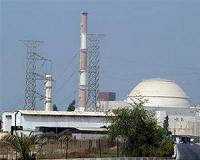 |
Brussels (AFP) Jan 7, 2011 Talks between world powers and Iran on its controversial nuclear programme should resume January 20 in Istanbul, an aide to European Union foreign policy chief Catherine Ashton said Friday. "It's a tentative date we're looking at... We have positive feedback from Iran," Ashton's spokeswoman Maja Kocijancic told AFP, adding that the talks were expected to last one and half days. Later in the day, however, Iran's Fars news agency ran an unsourced story saying the talks would resume on "Bahman 1 and 2," the Iranian calendar dates corresponding to January 21 and 22. It was not immediately possible to get official comment on that report. A previous round of talks between Iran and six world powers -- Britain, China, France, Russia, the United States and Germany -- spearheaded by Ashton, took place in Geneva on December 6-7. That round followed a 14-month hiatus in the talks on Iran's nuclear enrichment programme, which Tehran insists is peaceful but the US and its allies believe is aimed at developing an atom bomb. The US State Department said it looked forward to the next round of talks and "would like to see a meaningful negotiations process emerge," without specifying dates. State Department spokesman Philip Crowley said the United States and its partners were committed to "pragmatic efforts" to resolve the dispute. "But we are equally committed to holding Iran accountable to its international obligations and will continue to focus on this." Tehran this week invited the EU to tour its nuclear sites, along with other nations. But Brussels said it was up to UN inspectors from the International Atomic Energy Agency (IAEA) to carry out the visits. Iran's foreign ministry this week said invitations to visit the nuclear sites in Natanz and Arak had been sent to ambassadors of some of the nations represented in the IAEA. Diplomatic sources at the Vienna-based nuclear watchdog said invites went out to Russia, China, Egypt and Cuba as well as to Hungary, as rotating EU president since January 1. An EU official said Wednesday the bloc had not answered the letter and reiterated that the IAEA "are the people who have to inspect the Iranian nuclear facilities." IAEA sources said Britain, France, Germany and the United States were not on the list of countries invited to see the sites. A senior Iranian official said in Damascus on Monday that the January talks could resolve the dispute over Iran's nuclear programme. "We think (the negotiations), in line with the agenda decided in Geneva, could clear the way to resolving problems," said Ali Bagheri, deputy to Said Jalili, Iran's nuclear negotiator. Iran's nuclear programme has grown under the presidency of Mahmoud Ahmadinejad, attracting four rounds of UN sanctions and other unilateral punitive measures from various countries, including the United States. Ahmadinejad said in December that the Geneva talks were "very good", adding "it is time that they (world powers) change the policy of confrontation to engagement." Analysts and diplomats said they failed to dissipate distrust between world powers and Iran but marked the beginning of a new phase of dialogue. burs-jk/rl
Share This Article With Planet Earth
Related Links Learn about nuclear weapons doctrine and defense at SpaceWar.com Learn about missile defense at SpaceWar.com All about missiles at SpaceWar.com Learn about the Superpowers of the 21st Century at SpaceWar.com
 Iran invites Russia, China to atom sites but not US
Iran invites Russia, China to atom sites but not USTehran (AFP) Jan 4, 2011 Iran said on Tuesday it will open its atomic sites to some world powers, in a rare move swiftly dismissed as "antics' by the United States, which along with Britain, France and Germany, is not invited. Foreign ministry spokesman Ramin Mehmanparast said invitations to visit Iran's nuclear sites in Natanz and Arak have been sent to ambassadors of some of the nations represented in the Internat ... read more |
|
| The content herein, unless otherwise known to be public domain, are Copyright 1995-2010 - SpaceDaily. AFP and UPI Wire Stories are copyright Agence France-Presse and United Press International. ESA Portal Reports are copyright European Space Agency. All NASA sourced material is public domain. Additional copyrights may apply in whole or part to other bona fide parties. Advertising does not imply endorsement,agreement or approval of any opinions, statements or information provided by SpaceDaily on any Web page published or hosted by SpaceDaily. Privacy Statement |